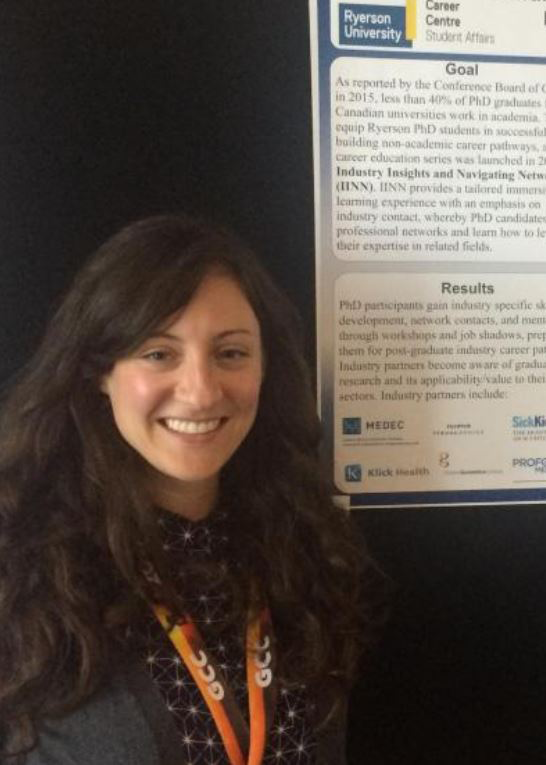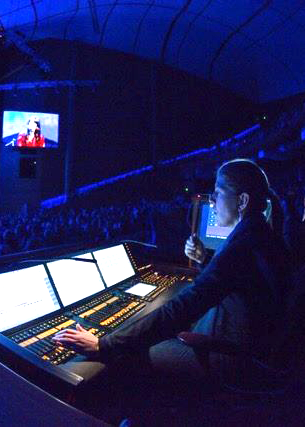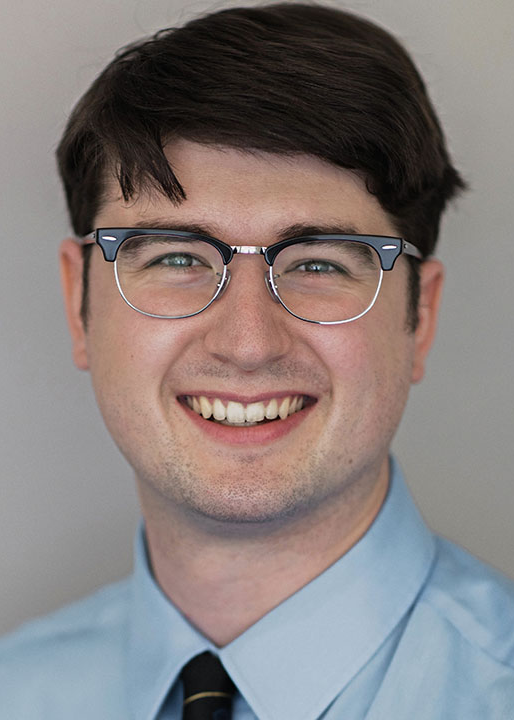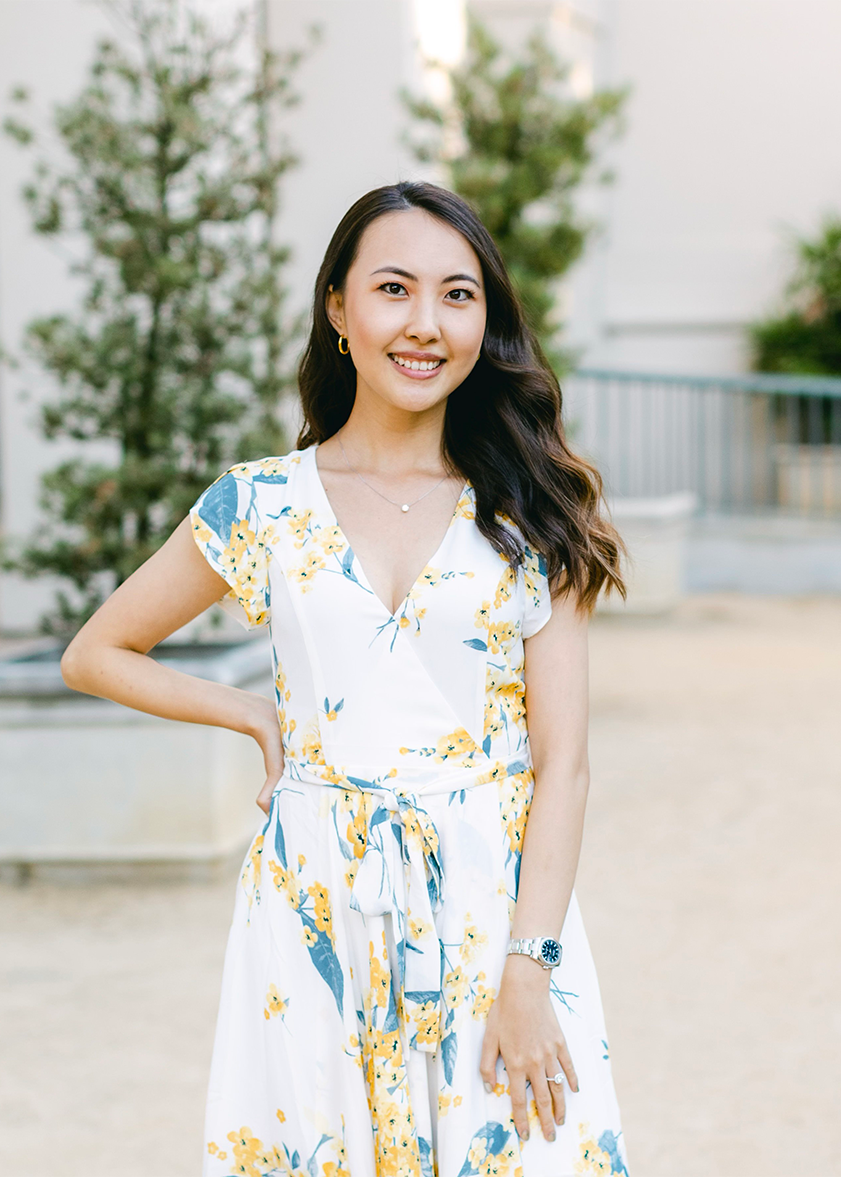Rebecca Dirnfeld

Why did you choose your program at UBC and what did you enjoy most about it?
I chose to study history at UBC because I am fascinated with how events of our past shape our present and future.
I most enjoyed my program’s 3rd- and 4th-year seminars where we studied primary sources and secondary literature, and engaged in critical discourse analysis.
What were some of your most meaningful experiences at UBC?
As a commuter student I spent a lot of time travelling back and forth between Richmond and UBC’s Vancouver campus. I enjoyed evening bus rides from campus when Marine Drive was quiet and peaceful.
I also enjoyed studying in the various libraries across campus and finding spaces that felt warm and inviting to settle into between classes on rainy days.
What choices did you make at UBC that contributed to your career success / journey?
One of the best choices I made while studying at UBC was to take advantage of office hours offered by faculty. As a result, I received mentorship as well as reference letters which aided in my later application to graduate school.
What was your first job after graduation and what other jobs did you have before your current position?
After graduating from UBC, I pursued an MA in history at the University of Ottawa. Following this, I spent time in a PhD program, also studying history.
While I did not complete my PhD program, I gained clarity as to what I wanted to do with my skills and education, and decided to pursue a career in the field of student affairs. I went on to obtain a diploma in career and work counselling, and began working as a career educator at Toronto Metropolitan University.
Since then, I have built up many years of experience advising students on career exploration. This is something I truly love to do!
After working as a student recruitment officer on behalf of a professional association, educating university and college students about entry into the accounting industry, I returned to career education at UBC and now work in the UBC Career Centre.
Is your current career path as you originally intended? What challenges did you face in launching your career?
I had no idea I would pursue this career path when I was an undergraduate student. I thought I would complete a PhD and become a faculty member in a history department, if I was lucky!
During my graduate studies I realized that I had more of a desire to advise students instead of teach them, and I also learned that this was where my strengths lay. This became evident while I worked as a teaching assistant and volunteered with academically at-risk students.
When I decided to transition and leave my PhD program to pursue a career and work counselling diploma, I faced the challenge of walking away from a well-defined career pathway. I was also unsure about how I would fully transition into an industry I didn’t have direct experience in.
Choosing a diploma program with two work placements was a fantastic opportunity for me to showcase and hone my relevant skills. I also worked on developing my network in the student affairs field, and tailored my job applications to each position I applied to. My efforts resulted in successfully receiving an offer to begin my new career path at Toronto Metropolitan University.
What do you like about your current job and what do you find challenging? How does it relate to your degree?
What I love about my current job is interacting with all kinds of university students at UBC. I find advising and facilitating workshops to be fun and engaging.
Career education relates to my degree in the humanities in numerous ways. I have honed a skill set in critical discourse analysis through which I am able to create and review resources to support students in their career exploration and development.
Communication, both verbal and written, is key to how history majors frame their analysis of the past. This has served me well in the various communication channels I use as a career educator.
From your experience, what has been the value of having an Arts degree?
I am delighted to have an Arts degree. It was an opportunity for me to develop my critical thinking skills and shape my worldview. I was given literature and sources to read and analyze that opened my eyes to different perspectives, both locally and globally.
I use my Arts degree constantly to evaluate and critically assess the world around me. I also use it to enhance my life through all aspects of the arts, from music to literature to film and beyond. It was a pleasure to have the time to focus on an Arts degree at UBC.
What advice would you give to students and alumni interested in breaking into your industry?
My advice is to focus on what is transferable. An Arts degree provides so many wonderful transferable skills. Consider what these are for you, and where your strengths lie. Also consider what values you possess and why these are relevant to an industry.
Networking is also important, especially in the student affairs field. Get to know people who work in departments that support student development.
What advice would you give your graduating self?
The advice I would give my graduating self is to listen to my gut. I was unaware at the time of how important it is to trust in oneself.
Listen to what the inner voice that is guiding you is saying, and engage with it. Go with your gut, and be open to experiences that broaden your scope.
Rebecca Dirnfeld



Why did you choose your program at UBC and what did you enjoy most about it?
I chose to study history at UBC because I am fascinated with how events of our past shape our present and future.
I most enjoyed my program’s 3rd- and 4th-year seminars where we studied primary sources and secondary literature, and engaged in critical discourse analysis.
What were some of your most meaningful experiences at UBC?
As a commuter student I spent a lot of time travelling back and forth between Richmond and UBC’s Vancouver campus. I enjoyed evening bus rides from campus when Marine Drive was quiet and peaceful.
I also enjoyed studying in the various libraries across campus and finding spaces that felt warm and inviting to settle into between classes on rainy days.
What choices did you make at UBC that contributed to your career success / journey?
One of the best choices I made while studying at UBC was to take advantage of office hours offered by faculty. As a result, I received mentorship as well as reference letters which aided in my later application to graduate school.
What was your first job after graduation and what other jobs did you have before your current position?
After graduating from UBC, I pursued an MA in history at the University of Ottawa. Following this, I spent time in a PhD program, also studying history.
While I did not complete my PhD program, I gained clarity as to what I wanted to do with my skills and education, and decided to pursue a career in the field of student affairs. I went on to obtain a diploma in career and work counselling, and began working as a career educator at Toronto Metropolitan University.
Since then, I have built up many years of experience advising students on career exploration. This is something I truly love to do!
After working as a student recruitment officer on behalf of a professional association, educating university and college students about entry into the accounting industry, I returned to career education at UBC and now work in the UBC Career Centre.
Is your current career path as you originally intended? What challenges did you face in launching your career?
I had no idea I would pursue this career path when I was an undergraduate student. I thought I would complete a PhD and become a faculty member in a history department, if I was lucky!
During my graduate studies I realized that I had more of a desire to advise students instead of teach them, and I also learned that this was where my strengths lay. This became evident while I worked as a teaching assistant and volunteered with academically at-risk students.
When I decided to transition and leave my PhD program to pursue a career and work counselling diploma, I faced the challenge of walking away from a well-defined career pathway. I was also unsure about how I would fully transition into an industry I didn’t have direct experience in.
Choosing a diploma program with two work placements was a fantastic opportunity for me to showcase and hone my relevant skills. I also worked on developing my network in the student affairs field, and tailored my job applications to each position I applied to. My efforts resulted in successfully receiving an offer to begin my new career path at Toronto Metropolitan University.
What do you like about your current job and what do you find challenging? How does it relate to your degree?
What I love about my current job is interacting with all kinds of university students at UBC. I find advising and facilitating workshops to be fun and engaging.
Career education relates to my degree in the humanities in numerous ways. I have honed a skill set in critical discourse analysis through which I am able to create and review resources to support students in their career exploration and development.
Communication, both verbal and written, is key to how history majors frame their analysis of the past. This has served me well in the various communication channels I use as a career educator.
From your experience, what has been the value of having an Arts degree?
I am delighted to have an Arts degree. It was an opportunity for me to develop my critical thinking skills and shape my worldview. I was given literature and sources to read and analyze that opened my eyes to different perspectives, both locally and globally.
I use my Arts degree constantly to evaluate and critically assess the world around me. I also use it to enhance my life through all aspects of the arts, from music to literature to film and beyond. It was a pleasure to have the time to focus on an Arts degree at UBC.
What advice would you give to students and alumni interested in breaking into your industry?
My advice is to focus on what is transferable. An Arts degree provides so many wonderful transferable skills. Consider what these are for you, and where your strengths lie. Also consider what values you possess and why these are relevant to an industry.
Networking is also important, especially in the student affairs field. Get to know people who work in departments that support student development.
What advice would you give your graduating self?
The advice I would give my graduating self is to listen to my gut. I was unaware at the time of how important it is to trust in oneself.
Listen to what the inner voice that is guiding you is saying, and engage with it. Go with your gut, and be open to experiences that broaden your scope.



